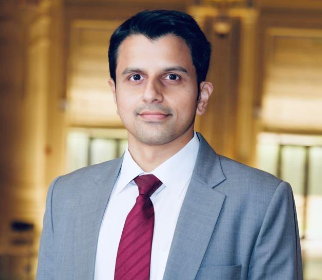AI vs human creativity – Why AI will never have its Einstein moment?
million years of computation, Deep Thought reveals that the answer is 42. However, the true question is unknown. This humorous and thought-provoking moment is a defining aspect of the book's satirical take on life and philosophy. Adams' wit and creativity shine through in this iconic scene, leaving readers pondering the absurdity and complexity of existence.

The Hitchhiker’s Guide to the Galaxy and the Quest for the Ultimate Question
In The Hitchhiker’s Guide to the Galaxy by Douglas Adams, the supercomputer Deep Thought is constructed to find the answer to the Ultimate Question of Life, the Universe, and Everything. After seven and a half million years of computation, Deep Thought reveals that the answer is “42.” But no one actually knows what the question is. To uncover this mystery, Deep Thought designs an even more powerful computer: Earth, to discover the Ultimate Question.
This brilliant narrative illustrates a profound truth: Asking the right questions is far more difficult than coming up with answers. And that ability—to ask good, meaningful, and imaginative questions—is a uniquely human trait. AI, no matter how sophisticated, is fundamentally lacking in this regard. It may generate coherent answers at the speed of light, but so can a scientific calculator. The real challenge is to ask the right questions and ponder over them deeply.
The Limitations of AI in Creativity
AI models can certainly produce visually stunning images, write elegant poems, and even compose intricate melodies. But this cannot be equated to true creativity. What AI produces is high-level, sophisticated plagiarism—so thinly drawn from countless sources that you can’t trace it back to any original work. While AI may appear creative on the surface, it lacks the emotional depth and experiential layers that define human creativity.
Art, for instance, often serves as a window into the creator’s mind and soul. Van Gogh’s paintings, with their vivid, swirling colors, evoke emotions rooted in his turbulent inner world. Machines, however, do not feel, they only mimic.
The Debate Surrounding AI and Human Intelligence
The hype around AI, AGI (Artificial General Intelligence), and Superintelligence has fueled speculation about whether machines will one day surpass human intelligence. Can AI discover groundbreaking concepts like Einstein’s theory of relativity or Newton’s laws of motion? Can it compose symphonies like Beethoven or philosophize like Shankaracharya?
Those deeply invested in generative AI companies may argue yes, especially since billions of dollars are riding on that dream. But AI pioneers like Yann LeCun and Andrew Ng remain skeptical, rightly pointing out that AGI is not within reach anytime soon.
The Essence of Human Creativity
True creativity is the art of balancing order and chaos. Pure order is boring; pure chaos is madness. The greatest breakthroughs often emerge from the messy, unstructured process of thinking. The unconscious mind’s chaotic processing can reveal patterns and insights that structured thinking could never reach.
But if we keep relying on AI for convenient, surface-level answers, we may find ourselves losing touch with our own creative depths. The real question is whether we are unknowingly trading our creative potential for the superficial comforts offered by AI.
The Future of Creativity and AI
The quest to build creative AI models is not just about teaching machines to imitate human thought. It is about understanding what makes creativity tick. Until AI can genuinely ask questions rather than merely respond to them, human creativity will remain a force beyond its reach. I would still place my bets on us humans to answer the Ultimate Question of Life, the Universe, and Everything long before any AI model ever would.

